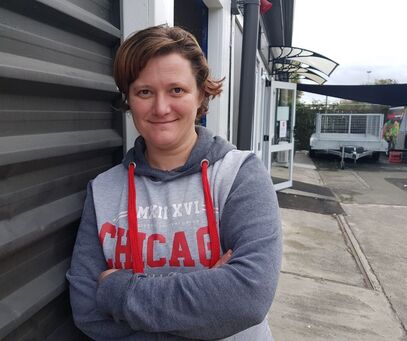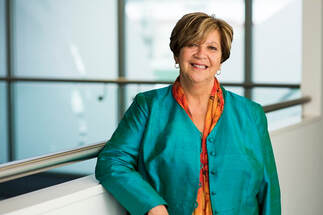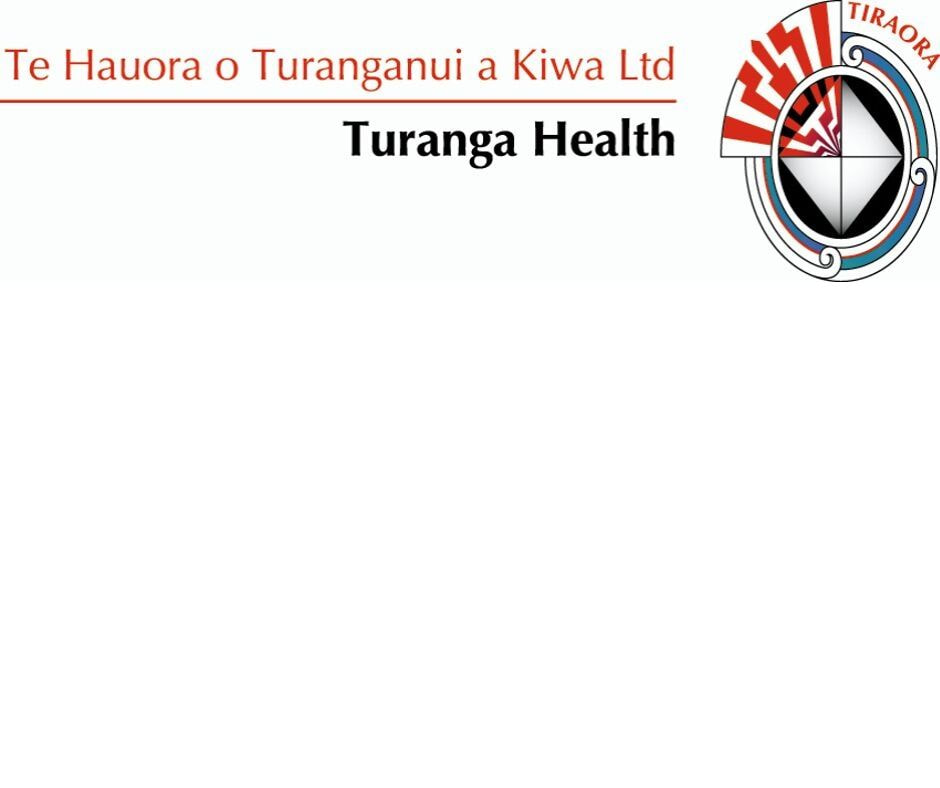 AFTER more than 30 years as a hairdresser, Marnie Evans went for a career change that’s not quite as radical as it seems. As a navigator for Turanga Health, Marnie works with whānau targeted for support under Manaaki Tairāwhiti's 50 Families scheme. “Any hairdresser will tell you that the job is just as much counselling as it is working with hair so I've had a lot of experience in that area,” she says. “And in any case, throughout my life I've always taken in kids in trouble, those who have needed a bit of help, so this is a natural fit for me.” With Under 50 Families, the approach is “whatever it takes” to help targeted whānau -- both for their own good, and for the good of generations to come. And “navigator” is a good term for Marnie's role as her job is not only to support whānau in good decision-making, but to help them untangle the systems they may need to work through. For Marnie (Te Aitanga-a-Māhaki), “whatever it takes” means she and her colleague Avenir Maurirere listen to whānau before working out a plan. “It is not our place to tell them what they need, it is for them to tell us what they need,” she says. “Our role is to build trust, to hear what they are saying, and to do whatever it takes to get it done.” So on any one day she might be helping a whānau member get to the doctor, supporting them in court, teeing up counselling or just taking the time to talk through what is affecting them. “There's a lot involved but it never feels like work,” says Marnie. “Being able to help whānau achieve their goals is the most rewarding thing you could ever do. It just makes me happy.”
0 Comments
 Years ago while working as a caregiver for the elderly Shannon Maats-Niwa decided she wanted to be a nurse and offer exemplary care. “I wanted to be the kind of nurse that a person deserved to have,” she says. And now she is! Shannon has been a nurse for seven years and is loving her new role at Turanga Health as a tamariki ora nurse supporting new māmā and their pēpi. She started with the iwi health provider just before New Zealand went into lockdown in response to the COVID-19 pandemic, and so for the first few weeks in her job she provided virtual care to whānau over the phone. It was vastly different to her previous nursing jobs including stints on various wards at Gisborne Hospital and four years on the frontline at the Rhythm and Vines music festival. “I wanted a job in primary care to help shape me and I have discovered I love being on this side of caring for people.” “It’s humbling” visiting whānau in their own home. She says some of the strong wahine she supports live with very little in the way of life’s luxuries and it makes her appreciate her own family and extended Dutch and Māori whānau. With an insatiable thirst for learning Shannon, 34, has her sights set on expanding her nursing career. Since graduating she has already added a post-graduate certificate and post-graduate diploma in nursing. Becoming a nurse practitioner, one of the country’s most qualified nurses, is her long term goal. “I like to keep on learning. I get stale if I stay in the same thing for too long” says Shannon, who along with husband Adam is bringing up their four children. There’s a chance her curiosity and motivation comes from her unique and stimulating childhood. Shannon and her two siblings grew up in a house truck for nearly five years traveling around much of New Zealand. They had a childhood surrounded by a range of unique and worldly people with the added bonus of being home schooled to a high standard. “It was an adventure,” remembers Shannon, who finished her education at Lytton High School. Turanga Health welcomes Shannon Maats-Niwa.  Eligible Three Rivers Medical patients are being vaccinated against influenza by Turanga Health nurses as the region’s two biggest primary health providers unite against the deadly disease. Three Rivers Medical co-owner and chief executive Ingrid Collins says Turanga Health’s offer of help to ensure patients over the age of 65 are vaccinated against influenza has come just at the right time. Local figures from the National Immunisation Register show 64 percent of people aged over 65 in the district have been immunised as of 29 May – up by 11 percent on last year’s figures. The figures also show 1350 over-65-year-olds who identify as Māori have been immunised – 56 percent of those who are eligible. But that means 1060 over-65-year-olds who identify as Maori around the district haven’t been immunised. “We want to make sure the eligible patients enrolled with our practice don’t miss the chance at protection,” says Mrs Collins. Mrs Collins says nurses and kaiāwhina from Turanga Health already have a relationship with many Three Rivers patients as part of the iwi provider’s work. “Turanga Health staff are already out in the community. It’s what they are good at so the partnership means we can use them to help get to our patients that qualify for the free vaccination.” Influenza, commonly known as the flu, is an infectious respiratory illness, caused by strains of the influenza virus. Each year it has a large impact on the community with 10-20 percent of New Zealanders infected. Some of these people become so ill they need hospital care, and a small number die. As part of the Ministry of Health's preparation for the potential impact of Covid-19 on the health sector, the 2020 influenza immunisation programme began early, from 18 March, for eligible patients, as they are at greatest risk of serious illness from influenza. Turanga Health now has five, two-person vaccinating teams working around the rohe. A kaiāwhina makes contact with the eligible person and lets them know when they will next be in their area. The kaiāwhina then books the person in for vaccination and a Turanga Health nurse administers the flu jab in the person’s home. Turanga Health adds the vaccination details to the National Immunisation Register, a computerised system that holds immunisation information of New Zealanders. Turanga Health chief executive Reweti Ropiha says there’s a couple of very good reasons why the large iwi health provider wanted to help. He says influenza is incredibly easy to catch and following New Zealand’s move through the lower alert levels, interactions between people are increasing. Alongside the onset of winter, it’s human nature for people to spend more time inside, Mr Ropiha says. If someone has the virus then there is a risk of giving it to anyone you are sharing air with indoors. “Our pakeke are vulnerable and so we want to get to them if we can.” By Monday 8 June Turanga Health staff had managed to track down 50 hard to reach pakeke who otherwise would have gone unvaccinated. Mr Ropiha says it’s important for whānau to remember the flu vaccine does not protect them against Covid-19 but it will help to “flatten the curve” of demand on Gisborne Hospital this winter. The shared influenza vaccination campaign is not the first time the two health organisations have worked together. Four years ago, Turanga Health’s flexible hours and community-based staffing were used to help more eligible Three Rivers Medical patients into smoking cessation programmes. Last year Turanga Health helped encourage more Three Rivers female patients to come in for their regular smear. “Some of our patients are hard to reach,” says Mrs Collins. “But that’s the kind of work that Turanga Health is so good at. It’s a great relationship that’s helping look after the health and wellbeing of this community.”  ON placement at Turanga Health in her last term of training, Well Child Tamariki Ora nurse Brigitt Fielder knew she was in the right place. “We'd done all sorts of placements and while I enjoyed the theatre environment, it was Turanga Health that really inspired me,” she says. “The moment I walked in I thought 'this feels like home' and the day after I sat my last exam, in November 2019, I started work.” That seems quick, but Brigitt had taken a long road to get there. A self-confessed “Jack of all trades”, between parenting her children she had worked in areas from upholstery to horticulture, to the stained glass work she still does today. “I had often thought about going into nursing but, with three kids to raise, I couldn't really afford to be a poor student,” she says. “But it was them that pushed me into it. My youngest was still at school when they said 'Mum, it's time, just do it!'.” If Turanga Health feels like “home”, Brigitt sees a lot of other homes in the course of her working day. As one of a team of three, she has hundreds of pēpi on her books, starting home visits from when baby is just five weeks old and continuing – though in reducing frequency – until the age of five. “We look at lots of things to do with a baby's health and development and also to see if mum has everything she needs, and how we can help if she doesn't,” Brigitt says. And working at Turanga Health means Brigitt has support for things outside her immediate brief. “Just recently I visited a rental home where there were eight kids, and no working heating -- it was freezing! – so that was a situation the team here at Turanga Health could do something about. If a home isn't warm, or the tamariki don't have enough clothing, those are issues we can refer on for further support.” But sometimes it is not only the babies that need the care of the Tamariki Ora team. “Everyone has different degrees of whānau support and sometimes the māmās just need to talk, and for you to say “you're doing the right thing, you're doing great . . . you've got this”. |
Media Releases
Email us if you want to receive our media releases. Archives
February 2024
|


